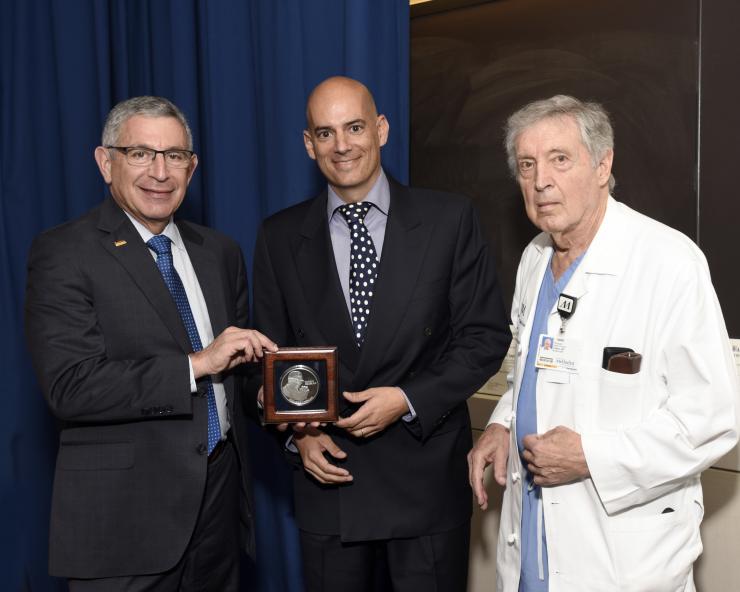2018 Recipient

Area: Molecular and Cellular Biology
Associate Professor of Molecular and Cellular Biology and Member of the Center for Cell and Gene Therapy and the Stem Cells and Regenerative Medicine Center
Dr. Karl-Dimiter Bissig, associate professor of molecular and cellular biology, has focused his research on human liver disease and human disease modeling.
His three most recent works were published in Nature Communications. In his first paper, Bissig introduced the first xenograft model for metabolic liver disease. This mouse model more closely resembles human disease modeling, offering the ability to validate human experimental therapies. These new models are of particular relevance to macromolecular therapies, which are sequence or epitope specific, and cannot be validated in experimental animal models. This process supports the rapid translation of therapy from lab to clinical trials. His work was also featured in “research highlights” in Nature Reviews Endocrinology.
His follow-up study demonstrated for the first time human-specific drug metabolism in an animal model. He and his team were able to functionally inactivate murine cytochrome metabolism in humanized mice. His results will likely influence drug development and toxicity in a broad sense since most drugs are metabolized through the liver.
In his third paper, he and his colleagues developed metabolic pathway reprogramming uses CRISPR/Cas9 genome editing technology to inhibit an enzymatic pathway rather than to edit a disease-causing gene directly. This publication rescued a lethal phenotype using this technology, and in contrast to common small molecule drugs, required only a single intervention to rescue 100 percent of treated animals.
Dr. Bissig’s nomination was based on the following publications:
Bissig-Choisat B., Wang L, Legras X., Pradip K.S., Chen L., Bell P., Pankowicz F.P., Hill M.C., Barzi M., Kettlun Leyton C., Eastwood L.C., Kruse R.L., Himes R.W., Goss J.A., Wilson J.M., Chan L.L., Lagor W.R. and Bissig K.D. Development and Rescue of Human Familial Hypercholesterolemia in a Xenograft Mouse Model. Nature Communications 2015 Jun 17;6:7339. PMCID: PMC4557302.
Pankowicz FP, Barzi M, Legras X, Hubert L, Mi T, Tomolonis JA, Ravishankar M, Sun Q, Yang D, Borowiak M, Sumazin P, Elsea SH, Bissig-Choisat B, Bissig K.-D. Reprogramming metabolic pathways in vivo with CRISPR/Cas9 genome editing to treat hereditary tyrosinaemia. Nature Communications. 2016; 7:12642. PMCID: PMC5013601.
Barzi M, Pankowicz FP, Zorman B, Liu X, Legras X, Yang D, Borowiak M, Bissig-Choisat B, Sumazin P, Li F, and Bissig K.-D. A novel humanized mouse lacking murine P450 oxidoreductase for studying human drug metabolism. Nature Communications 2017 Jun 28;8(1):39 PMCID: PMC5489481.
DeBakey Award Nominations
Baylor College of Medicine faculty members are invited to nominate colleagues for Michael E. DeBakey, M.D., Excellence in Research Awards. Learn more.








